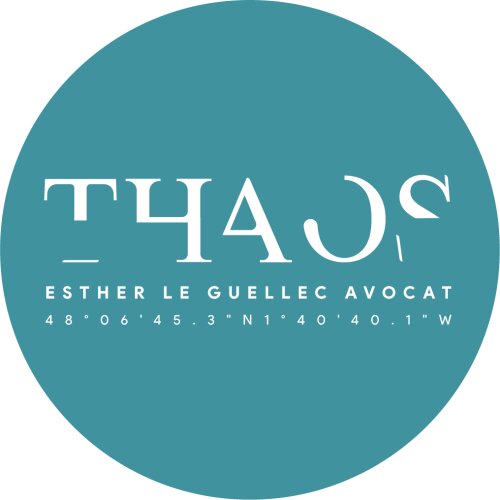Best Antitrust Litigation Lawyers in France
Share your needs with us, get contacted by law firms.
Free. Takes 2 min.
Or refine your search by selecting a city:
List of the best lawyers in France
About Antitrust Litigation Law in France
Antitrust litigation in France refers to legal disputes and court proceedings surrounding the enforcement and violation of competition laws. These laws are designed to promote fair competition, restrict unlawful cooperation between businesses, and prevent the abuse of dominant market positions. The French Competition Authority, known as the Autorité de la concurrence, and the commercial courts play a central role in enforcing these regulations. Antitrust litigation may involve actions against anti-competitive agreements, cartels, price-fixing, market allocation schemes, or any abuse of economic power that may distort the market.
Why You May Need a Lawyer
There are several situations when seeking the advice or representation of a legal professional in antitrust matters becomes essential:
- Your business is under investigation by the French Competition Authority for potential anti-competitive practices.
- You suspect a competitor is engaging in anti-competitive behavior that harms your business.
- You want to ensure your commercial agreements and business practices comply with competition laws.
- You have received a statement of objections or formal notification from the Autorité de la concurrence.
- You wish to file a civil lawsuit seeking damages resulting from anti-competitive conduct by others.
- You are facing penalties, fines, or sanctions for alleged antitrust law violations.
- You are considering leniency or settlement applications in an ongoing investigation.
An experienced antitrust lawyer can help assess the risks, develop a legal strategy, ensure compliance, and represent your interests before authorities or courts.
Local Laws Overview
French antitrust law is primarily governed by the French Commercial Code (Code de commerce), particularly its Book IV on Freedom of Prices and Competition. Key aspects include:
- Prohibited Agreements: Cartels and agreements between companies that aim to restrict competition, such as price-fixing or sharing markets, are strictly prohibited.
- Abuse of Dominant Position: Companies holding a dominant position in a market must not exploit it to hinder competition, for instance by imposing unfair prices or discriminating between customers.
- Merger Control: Certain mergers and acquisitions must be notified and cleared by the French Competition Authority before completion if they exceed specified turnover thresholds.
- Sanctions: Authorities can impose significant fines, order cease and desist measures, and even, in certain cases, require the divestiture of assets.
- Private Enforcement: Victims of anti-competitive behavior can bring private actions for damages in civil courts.
- European Union Law: Many French cases also involve the application of EU competition law, especially for activities affecting trade between EU member states.
Complying with both national and European competition rules is crucial for businesses operating in France.
Frequently Asked Questions
What is considered anti-competitive behavior in France?
Anti-competitive behavior can include price-fixing, bid-rigging, market sharing, abusing a dominant market position, and exchanging sensitive commercial information between competitors.
Who enforces antitrust laws in France?
The primary enforcement body is the Autorité de la concurrence (French Competition Authority). Courts, especially commercial courts, also play an important role in private enforcement through litigation.
Can individuals or businesses be fined for breaching antitrust law?
Yes, both businesses and individuals can face substantial fines for infringing competition rules, with penalties calculated based on the company's turnover and the severity of the infringement.
What should I do if my business is under investigation?
Seek immediate legal advice. Cooperate with authorities, preserve all relevant documents, and refrain from discussing or destroying any information related to the investigation.
Can I sue for damages if I am a victim of anti-competitive conduct?
Yes, French law allows victims to bring civil lawsuits before the courts to seek compensation for harm suffered due to anti-competitive practices.
How long does antitrust litigation typically last in France?
The duration varies depending on the complexity of the case, but proceedings can last from several months to several years, especially if appeals are involved.
Are leniency programs available in France?
Yes, the French Competition Authority operates a leniency program, where companies can receive reduced fines if they provide information and cooperate during cartel investigations.
How does French antitrust law interact with EU law?
Both sets of laws apply in France. If anti-competitive conduct affects trade within the EU, European Commission rules may also be enforced alongside or instead of French laws.
Do merger transactions require approval from the authorities?
Certain mergers and acquisitions must be notified and cleared by the French Competition Authority if turnover thresholds are met. Failure to do so can lead to sanctions.
What are the potential consequences for violating competition law?
Consequences can include financial penalties, orders to cease unlawful behavior, annulment of agreements, criminal sanctions for individuals, reputation damage, and private lawsuits from harmed parties.
Additional Resources
Here are some key resources and organizations to assist you further:
- Autorité de la concurrence: The official French Competition Authority responsible for investigating and sanctioning breaches of competition law.
- European Commission - Competition Directorate General: For matters with a cross-border or EU-wide impact.
- French Ministry of Economy and Finance: Provides guidance and policy on competition issues in France.
- Paris Bar Association (Ordre des avocats de Paris): Directory to find qualified competition law lawyers.
- Local chambers of commerce: Often provide resources on regulatory compliance for businesses.
These organizations offer valuable information, guidance, and contacts for businesses and individuals seeking counsel.
Next Steps
If you believe you may be involved in or affected by an antitrust issue in France, here are steps you should consider:
- Document all relevant information regarding the conduct or transaction in question.
- Avoid destroying or altering any documents or communications that may be pertinent to an investigation or litigation.
- Reach out to a lawyer with experience in French and EU competition law as soon as possible.
- Prepare a clear summary of your concerns, potential evidence, and any correspondence with regulators or other parties.
- If your business is notified of an investigation or receives formal requests for information, respond promptly but only upon advice from legal counsel.
- Stay informed about deadlines and procedural rules for litigation or notification.
Taking prompt and informed legal action is essential for effectively managing risks in antitrust matters and protecting your business interests.
Lawzana helps you find the best lawyers and law firms in France through a curated and pre-screened list of qualified legal professionals. Our platform offers rankings and detailed profiles of attorneys and law firms, allowing you to compare based on practice areas, including Antitrust Litigation, experience, and client feedback.
Each profile includes a description of the firm's areas of practice, client reviews, team members and partners, year of establishment, spoken languages, office locations, contact information, social media presence, and any published articles or resources. Most firms on our platform speak English and are experienced in both local and international legal matters.
Get a quote from top-rated law firms in France — quickly, securely, and without unnecessary hassle.
Disclaimer:
The information provided on this page is for general informational purposes only and does not constitute legal advice. While we strive to ensure the accuracy and relevance of the content, legal information may change over time, and interpretations of the law can vary. You should always consult with a qualified legal professional for advice specific to your situation.
We disclaim all liability for actions taken or not taken based on the content of this page. If you believe any information is incorrect or outdated, please contact us, and we will review and update it where appropriate.
Browse antitrust litigation law firms by city in France
Refine your search by selecting a city.















